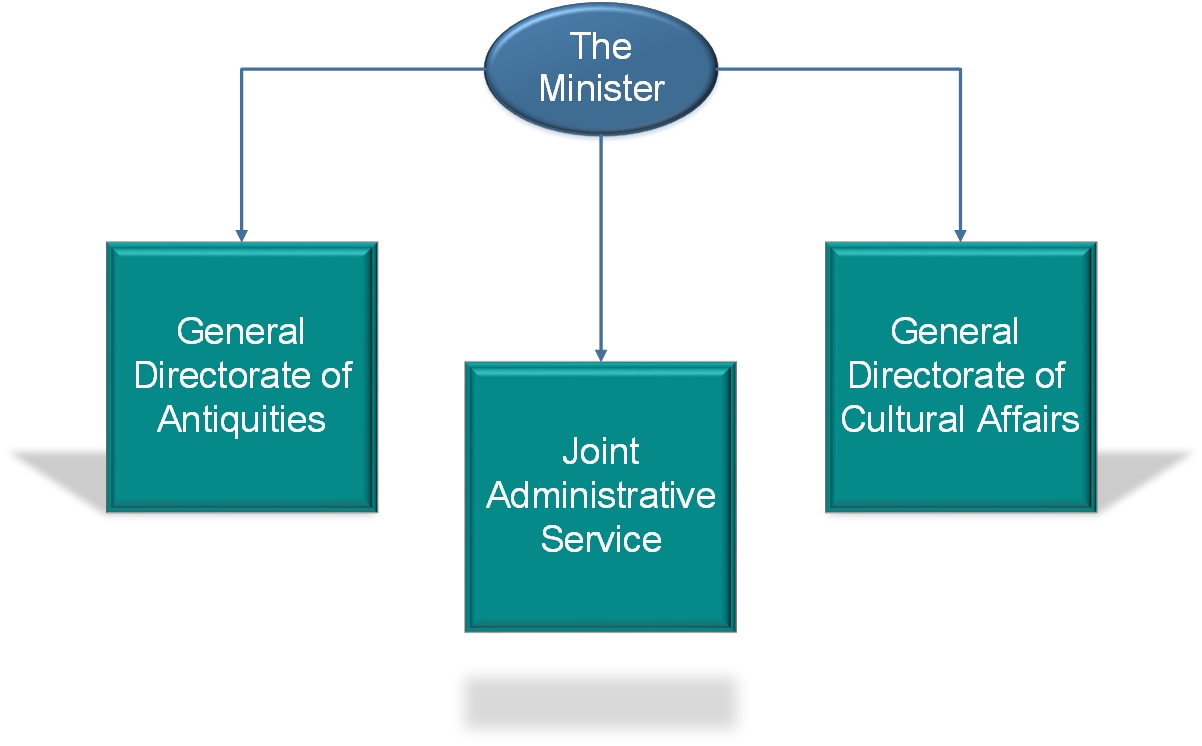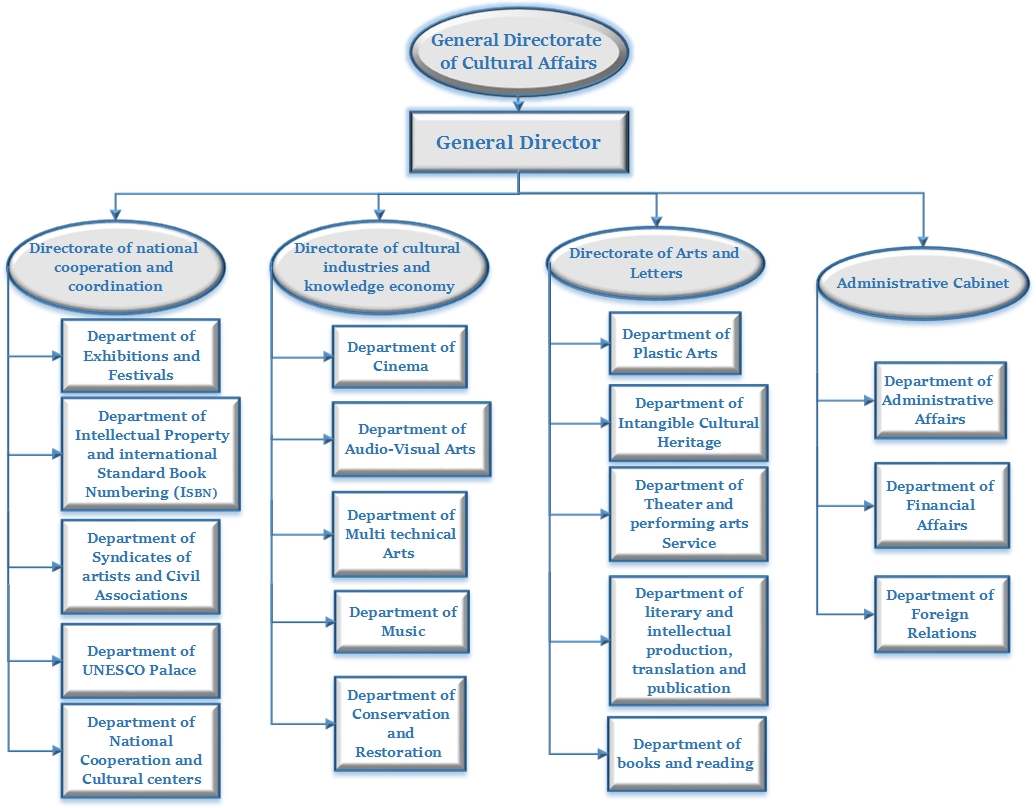The Directorate General of Cultural Affairs is in charge of all kinds of plastic arts; arts, crafts and folk traditions; literature and intellectual yield; theater and performing arts; cinema; in addition to multi-technical arts including audio-visual art and mass media arts.
Tasks of the Directorate General of Cultural Affairs
-
Setting and implementing policies, plans, programs and activities pertaining to its fields of specialization.
-
Monitoring all cultural property not considered an antique, an archeological remain or a historical monument, making lists of its contents, managing its repositories, and proposing the necessary laws, frameworks and measures for preserving, acquiring, lending and consigning it.
-
Establishing facilities and buildings pertaining to its fields of specialization and supervising them, in addition to improving the state of the existing ones.
-
Organizing conferences, symposiums, seminars and meetings on different levels, and nominating the concerned people to participate in Arab and International meetings.
-
Sponsoring those who work in the various relevant sectors and honoring the innovators among them.
-
Encouraging those competent in its fields of specialization and promoting all opportunities allowing them to gain production and innovation efficiencies including setting and implementing special programs for preparing, qualifying, and training them.
-
Developing studies and research in the relevant fields and setting them for publication.
-
Encouraging exhibitions and festivals in its fields of specialization, sponsoring these events, and participating in their organization.
-
Organizing contests, awards, and incentives, giving grants in Lebanon, and nominating persons to benefit from grants abroad, all within its fields of specialization.
-
Cooperating with private and public administrations and institutions, municipalities, local agencies, NGOs, and individuals in order to realize its tasks.
-
Managing and investing the UNESCO Palace.










